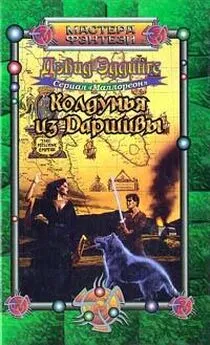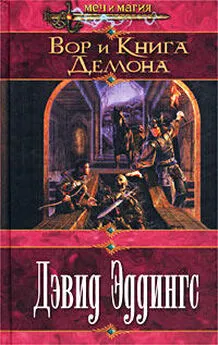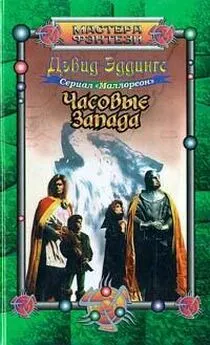David Wallace - Infinite jest
- Название:Infinite jest
- Автор:
- Жанр:
- Издательство:Back Bay Books
- Год:2006
- ISBN:нет данных
- Рейтинг:
- Избранное:Добавить в избранное
-
Отзывы:
-
Ваша оценка:
David Wallace - Infinite jest краткое содержание
Infinite Jest is the name of a movie said to be so entertaining that anyone who watches it loses all desire to do anything but watch. People die happily, viewing it in endless repetition. The novel Infinite Jest is the story of this addictive entertainment, and in particular how it affects a Boston halfway house for recovering addicts and a nearby tennis academy, whose students have many budding addictions of their own. As the novel unfolds, various individuals, organisations, and governments vie to obtain the master copy of Infinite Jest for their own ends, and the denizens of the tennis school and halfway house are caught up in increasingly desperate efforts to control the movie — as is a cast including burglars, transvestite muggers, scam artists, medical professionals, pro football stars, bookies, drug addicts both active and recovering, film students, political assassins, and one of the most endearingly messed-up families ever captured in a novel.
On this outrageous frame hangs an exploration of essential questions about what entertainment is, and why it has come to so dominate our lives; about how our desire for entertainment interacts with our need to connect with other humans; and about what the pleasures we choose say about who we are. Equal parts philosophical quest and screwball comedy, Infinite Jest bends every rule of fiction without sacrificing for a moment its own entertainment value. The huge cast and multilevel narrative serve a story that accelerates to a breathtaking, heartbreaking, unfogettable conclusion. It is an exuberant, uniquely American exploration of the passions that make us human and one of those rare books that renew the very idea of what a novel can do.
Infinite jest - читать онлайн бесплатно полную версию (весь текст целиком)
Интервал:
Закладка:
‘You were our designated deliverer, Hallie, no question about it.’
‘And here but here was this authority figure with top credentials in frames over every square cm. of his walls who sat there and refused even to define what the goods here would be. Say what you will about Schtitt and deLint: they let you know what they want in no uncertain terms. Flottman, Chawaf, Prickett, Nwangi, Fentress, Lingley, Pettijohn, Ogilvie, Leith, even the Moms in her way: they tell you on the very first day of class what they want from you. But this son of a bee right here: no dice.’
‘You must have been in shock the whole time, too.’
‘O., it got worse and worse. I dropped weight. I couldn’t sleep. This was when the nightmares started. I kept dreaming of a face in the floor. I lost to Freer again, then to Coyle. I went three sets with Troeltsch. I got B’s on two different quizzes. I couldn’t concentrate on anything else. I’d become obsessed with the fear that I was somehow going to flunk grief-therapy. That this professional was going to tell Rusk and Schtitt and C.T. and the Moms that I couldn’t deliver the goods.
‘I’m sorry I couldn’t be there.’
‘The odd thing was that the more obsessed I got, the worse I played and slept, the happier everybody got. The grief-therapist complimented me on how haggard I was looking. Rusk told deLint the grief-therapist’d told the Moms that it was starting to work, that I was starting to grieve, but that it was a long process.’
‘Long and costly.’
‘Roger. I began to despair. I began to foresee somehow getting left back in grief-therapy, never delivering the goods and it never ending. Having these Kafkaesque interfaces with this man day after day, week after week. It was now May. The Continental Clays I’d gotten all the way to the fourth round of the year before were coming up, and it became quietly clear that everybody felt I was at a crucial stage in the long costly grieving process and I wasn’t going to get to go with the contingent to Indianapolis unless I could figure out some last-ditch way to deliver the emotional goods to this guy. I was totally desperate, a wreck.’
‘So you schlepped on down to the weight room. You and the forehead paid a visit to good old Lyle.’
‘Lyle turned out to be the key. He was down there reading Leaves of Grass. He was going through a Whitman period, part of grieving for Himself, he said. I’d never gone to Lyle before in any kind of supplicatory capacity, but he said he took one grief-stricken look at me flailing away down there working up a gourmet sweat and said he felt so moved by my additional suffering on top of having had to be the first of Himself’s loved ones to experience the loss of Himself that he’d bend every cerebral effort. I assumed the position and let him at the old forehead and explained what had been happening and that if I couldn’t figure out some way to satisfy this grief-pro I was going to end up in a soft quiet room somewhere. Lyle’s key insight was that I’d been approaching the issue from the wrong side. I’d gone to the library and acted like a student of grief. What I needed to chew through was the section for grief-professionals themselves. I needed to prepare from the grief-pro’s own perspective. How could I know what a professional wanted unless I knew what he was professionally required to want, etc. It was simple, he said. I needed to empathize with the grief-therapist, Lyle said, if I wanted to spread a broader breast than his own. It was such a simple obversion of my normal goods-delivery-preparation system that it hadn’t once occurred to me, Lyle explained.’
‘Lyle said all that? That doesn’t sound like Lyle.’
‘But a sort of soft light broke inside me for the first time in weeks. I called a cab, still in my towel. I jumped in the cab before it had even stopped at the gate. I actually said, “The nearest library with a cutting-edge professional grief- and trauma-therapy section, and step on it.” Et cetera et cetera.’
‘The Lyle my class knew wasn’t a how-to-deliver-the-goods-to-authorities-type figure.’
‘By the time I hit the grief-therapist’s the next day I was a different man, immaculately prepared, unfazable. Everything I’d come to dread about the man — the eyebrows, the multicultural music in the waiting room, the implacable stare, the crusty mustache, the little gray teeth, even the hands — did I mention that this grief-therapist hid his hands under his desk at all times?’
‘But you got through it. You grieved to everybody’s satisfaction, you’re saying.’
‘What I did, — 1 went in there and presented with anger at the grief-therapist. I accused the grief-therapist of actually inhibiting my attempt to process my grief, by refusing to validate my absence of feelings. I told him I’d told him the truth already. I used foul language and slang. I said I didn’t give a damn if he was an abundantly credentialed authority figure or not. I called him a shithead. I asked him what the cock-shitting fuck he wanted from me. My overall demeanor was paroxysmic. I told him I’d told him that I didn’t feel anything, which was the truth. I said it seemed like he wanted me to feel toxically guilty for not feeling anything. Notice I was subtly inserting certain loaded professional-grief-therapy terms like validate, process as a transitive verb, and toxic guilt. These were library-derived.’
‘The whole difference was this time you were walking on-court oriented, with a sense of where the lines were, Schtitt would say.’
‘The grief-therapist encouraged me to go with my paroxysmic feelings, to name and honor my rage. He got more and more pleased and excited as I angrily told him I flat-out refused to feel iota-one of guilt of any kind. I said what, I was supposed to have lost even more quickly to Freer, so I could have come around HmH in time to stop Himself? It wasn’t my fault, I said. It was not my fault I found him, I shouted; I was down to black street-socks, I had legitimate emergency-grade laundry to do. By this time I was pounding myself on the breastbone with rage as I said that it just by-God was not my fault that —’
That what?’
‘That’s just what the grief-therapist said. The professional literature had a whole bold-font section on Abrupt Pauses in High-Affect Speech. The grief-therapist was now leaning way forward at the waist. His lips were wet. I was in The Zone, therapeutically speaking. I felt on top of things for the first time in a long time. I broke eye-contact with him. That I’d been hungry, I muttered.’
‘Come again?’
‘That’s just what he said, the grief-therapist. I muttered that it was nothing, just that it damn sure wasn’t my fault that I had the reaction I did when I came through the front door of HmH, before I came into the kitchen to get to the basement stairs and found Himself with his head in what was left of the microwave. When I first came in and was still in the foyer trying to get my shoes off without putting the dirty laundry-bag down on the white carpet and hopping around and couldn’t be expected to have any idea what had happened. I said nobody can choose or have any control over their first unconscious thoughts or reactions when they come into a house. I said it wasn’t my fault that my first unconscious thought turned out to be —’
‘Jesus, kid, what?’
‘ “That something smelled delicious!” I screamed. The force of my shriek almost sent the grief-therapist over backwards in his leather chair. A couple credentials fell off the wall. I bent over in my own nonleather chair as if for a crash-landing. I put a hand to each temple and rocked back in forth in the chair, weeping. It came out between sobs and screams. That it’d been four hours plus since lunchtime and I’d worked hard and played hard and I was starved. That the saliva had started the minute I came through the door. That golly something smells delicious was my first reaction!’
‘But you forgave yourself.’
‘I absolved myself with seven minutes left in the session right there in full approving view of the grief-therapist. He was ecstatic. By the end I swear his side of the desk was half a meter off the floor, at my grief-therapist-textbook breakdown into genuine affect and trauma and guilt and textbook earsplit-ting grief, then absolution.’
‘Christ on a jet-ski, Hallie.’
‘…’
‘But you got through it. You really did grieve, and you can tell me what it was like, so I can say something generic but convincing about loss and grief for Helen for Moment.’
‘But I’d omitted that somehow the single most nightmarishly compelling thing about this top grief-therapist was that his hands were never visible. The dreadfulness of the whole six weeks somehow coalesced around the issue of the guy’s hands. His hands never emerged from underneath his desk. It was as if his arms terminated at the elbow. Besides mustache-material-analysis, I also spent large blocks of each hour trying to imagine the configurations and activities of those hands under there.’
‘Hallie, let me just ask and then I’ll never bring it back up again. You implied before that what was especially traumatic was that Himself’s head had popped like an uncut spud.’
‘Then on what turned out to be the last day of the therapy, the last day before the A squads were picked for Indianapolis, after I’d finally delivered the goods and my traumatic grief was professionally pronounced uncovered and countenanced and processed, when I put on my sweatshirt and got set to take my leave, and came up to the desk and put out my hand in a trembly grateful way he couldn’t possibly have refused, and he stood and brought out the hand and shook my hand, I finally understood.’
‘His hands were disfigured or something.’
‘His hands were no bigger than a four-year-old girl’s. It was surreal. This massive authoritative figure, with a huge red meaty face and thick walrus mustache and dewlaps and a neck that spilled over the rim of his shirt-collar, and his hands were tiny and pink and hairless and butt-soft, delicate as shells. The hands were the capper. I barely made it out of the office before it started.’
‘The cathartic post-traumatic-like-reexperience hysteria. You reeled out of there.’
‘I barely made it to the men’s room down the hall. I was laughing so hysterically I was afraid all the periodontists and C.P.A.s on either side of the men’s room would hear. I sat in a stall with my hands over my mouth, stamping my feet and beating my head against first one side of the stall and then the other in hysterical mirth. If you could have seen those hands.’
‘But you got through it all, and you can thumbnail-sketch the overall feeling for me.’
‘What I feel is myself gathering my resources for the right foot, finally. That magic feeling’s back. I’m not lining up the vectors for the wastebasket or anything. I’m not even thinking. I’m trusting the feeling. It’s like that celluloid moment when Luke removes his high-tech targeting helmet.’
‘What helmet?’
‘You know, of course, that human nails are the vestiges of talons and horns. That they’re atavistic, like coccyges and hair. That they develop in-utero long before the cerebral cortex.’
‘What’s the matter?’
‘That at some point in the first trimester we lose our gills but are now still now little more than a bladdery sac of spinal fluid and a rudimentary tail and hair-follicles and little microchips of vestigial talon and horn.’
Ts this to make me feel bad? Did this fuck you up, me probing for details after all this time? Did it reactivate the grief?’
Читать дальшеИнтервал:
Закладка:










